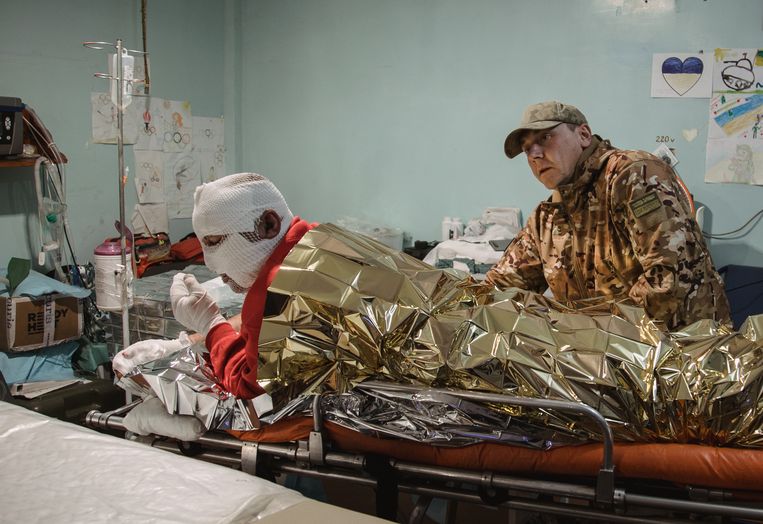The recent political and military developments surrounding the war in Ukraine have presented a major dilemma for the rest of Europeans: What should we do? “Russia is a feudal state, where the cheapest resource is human life,” a senior Ukrainian military official said.
In fact, there is more going on in Russia’s war against and around Ukraine than can be summed up in a few words, but an attempt to do so would best start with President Putin’s spokesman Dmitry Peskov. He responded to a remark made by Ukraine’s top soldier, General Valery Zalozhny, that the war had reached a “stalemate.”
Peskov’s response was: “No, there is no dead end.” Russia carries out the special military operation systematically. All the goals set must be achieved.”
With the crisis in the Middle East consuming all media attention, a major battle is taking place around the Ukrainian city of Avdiivka. The material and human losses on the Russian side are enormous, but the Russians keep coming. Pictures are spreading of the massive destruction of Russian equipment, but Ukrainian soldiers point out that they are also suffering heavy losses. Who better to bear it?
“Limitless” potential.
One of them says (on Telegram): “The numbers are numbers, and even if twenty out of a hundred attackers reach our trenches, our boys will be tired of eliminating the other eighty.” Who sees with horror that Russia’s offensive capabilities seem “limitless.”
Ukrainian General Zalozhny also mentions this The Economist The Battle of Avdiivka as an example. “On our observers when I was there, we saw 140 Russian vehicles in flames – they were destroyed within four hours of coming within range of our artillery.” But he admits that the visibility and weakness of the attacking units works both ways, and also hinders the Ukrainian counterattack.
The Western weapons with which this counterattack could have been successful, namely modern Western fighter aircraft and precise long-range missiles, did not arrive or arrived too late and in insufficient numbers. The equipment that arrived arrived so late that Russia could have already fortified itself.
Massive American and European military support, which came only after Ukraine far exceeded Western expectations in the first phase of the battle, was always enough to keep Ukraine from losing. But the country did not obtain the weapons necessary to achieve victory. Zalozny is not complaining about this: “They are not obligated to give us anything, and we are grateful for what we get, but I am simply stating the facts.”
The value of lives
Long, large-scale wars are determined by the interaction between the desire to fight and the numbers of people and weapons available on both sides. Zalozny says he downplayed the importance of human life to Vladimir Putin. Russia has enough of these things. “Russia is a feudal state, where the cheapest resource is human life. But for us this is the most precious commodity.”
Against this background, along with uncertain US support and a stringent Russian defense budget for a country that has long shifted to a war economy, big and fundamental questions now arise for the European countries that support Ukraine.
Italian Prime Minister Giorgia Meloni, known as a supporter of Kiev, was misled last month by Russians who said they were from the African Union. “I see there is a lot of fatigue on all sides,” Meloni told them over the phone. “We are approaching the moment when everyone understands that we need a way out.”
Beyond imagination
But it is not that easy, as evidenced by Russia’s willingness to sacrifice tens of thousands of people and entire Ukrainian cities for Putin’s goals. The nature, scale, and severity of this war against Ukraine are indeed beyond European imagination and gravity – but Europeans do not have a get-out-of-jail-free option.
So what now? Roughly speaking, there are two options between which the Europeans and the United States must choose. The first is a huge financial and industrial project that uses the power of Western economies to defeat Russia’s productive power.
The second is to accelerate Ukraine’s membership in NATO as the only real guarantee to stop Russian attacks. Followed by accelerated membership in the European Union. Kiev must then accept – as West Germany did during the Cold War – the temporary loss of the occupied territories.

So just keep plodding along?
It is completely uncertain whether any of these variants will be possible in the foreseeable future. It depends on the development of the war and what Ukraine wants. The country owes its survival to its fighting spirit – and will do anything to avoid being subjected to a harsh, nihilistic regime. With or without Western support.
On the European side, the uncertainty is no less serious: political leadership is largely absent, including in Berlin and Paris, so the urgent need to turn Ukraine’s rescue into a major European political-industrial project seems far-fetched. The European Union even has a leader like Hungarian Prime Minister Viktor Orbán who takes pride in embracing Putin. Membership in NATO and the European Union is also easier said than done.
Therefore, continuing without a possible final strategic goal constitutes a realistic third option. As for the fourth scenario, Ukraine is forced to give up its territory in light of faltering Western support, while more cities turn to ashes, which is a real possibility. One thing is certain: the answer to the big question now facing Europe with great urgency will determine the future of the continent and its people for a long time to come.

“Creator. Award-winning problem solver. Music evangelist. Incurable introvert.”






More Stories
France’s left-wing bloc puts forward a candidate for prime minister: this is Lucie Castet
More than 2,500 arrested after massive student protests in Bangladesh
EU criticizes Israeli PM for distorting history, court ruling